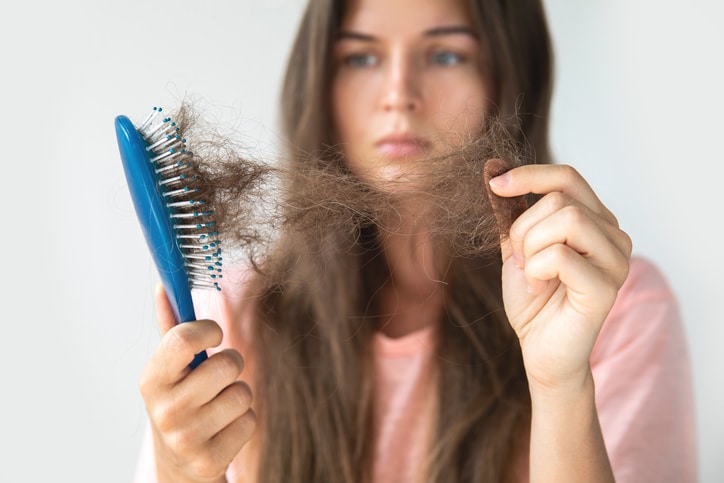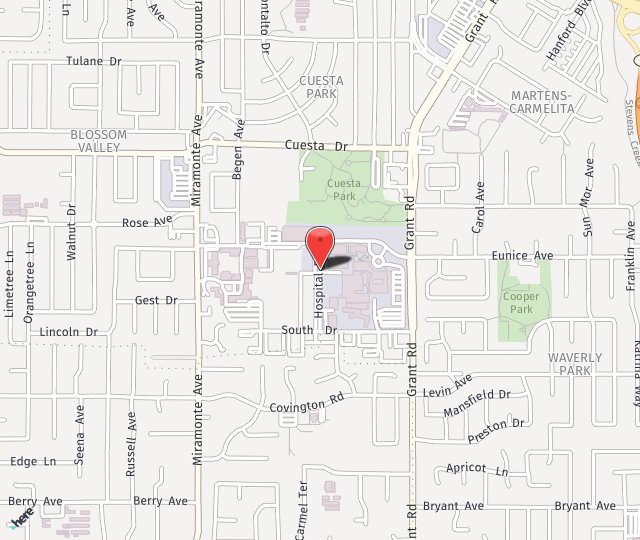 Thinning scalp hair is usually not related to serious health issues, but can be a huge source of stress and anxiety for women. In most cases, the reason for hair loss can be determined by consultation and careful examination by a board-certified dermatologist.
Thinning scalp hair is usually not related to serious health issues, but can be a huge source of stress and anxiety for women. In most cases, the reason for hair loss can be determined by consultation and careful examination by a board-certified dermatologist.
When the cause of hair loss (also known as alopecia) isn’t clear, a biopsy of scalp skin and/or blood tests may be helpful. A dermatologist has the training and expertise to manage all types of hair loss and will be able to guide you regarding the need for further testing and treatment options.
What are the most likely reasons for hair loss in women? First of all, you should know that it is normal to have some hair loss or shedding. Actually, the American Academy of Dermatology reports that people lose up to 150 scalp hairs each day. This is completely normal. Different types of hair loss can result in significant thinning over the entire scalp or the development of smaller bald patches. Dermatologists can treat most causes of hair loss.
Here are some common causes:
Female Pattern Hair Loss (Androgenetic Alopecia)
Similar to scalp hair loss in men, female pattern hair loss (known medically as androgenetic alopecia in both sexes), is a result of the effect of hormones called androgens on the scalp hair follicles. Androgens (mostly testosterone) cause actual miniaturization of hair follicles in genetically susceptible individuals. The result is that scalp hairs become tiny and almost too small to see. For women, this type of hair loss occurs on the crown or topmost part of the scalp and is commonly seen after menopause. In men, hair thinning usually starts from the frontal hairline and extends to the back of the head, beginning as early as the teen years. Androgenetic alopecia is a common cause of hair loss in women, affecting an estimated 30-50 million in the US. Fortunately, it is unlikely to progress to complete scalp baldness, although it can be a significant source of anxiety and stress.
Alopecia Areata
This type of hair loss is the result of an autoimmune condition and may appear suddenly. The characteristic findings are smooth, round, hairless patches on the scalp. The hair follicles are still intact and the hair can regrow completely. Again, genetics and possibly environmental factors such as stress are thought to be the cause of this type of hair loss. Approximately 2% of the population may develop alopecia areata in their lifetime and it often begins in childhood. Scalp injections by a dermatologist using a dilute concentration of cortisone are safe and very effective in directly treating scalp areas affected by this type of hair loss.
Diet, Stress and Pregnancy
These factors commonly lead women to notice that their hair feels thinner than usual. This form of alopecia is called telogen effluvium which literally means “a flood of hair loss.” and typically occurs rapidly over a period of weeks to months following a major stressful event. Telogen effluvium may also be triggered by crash dieting, surgery, extreme emotional stress (eg, after the loss of a loved one) or an illness with fever. In all of these situations, the cause of the “flood” of hair loss is the effect of stressors on the hair follicle. This results in an abrupt shortening of the hair growth cycle from a normal 3-year growth period for each hair to only a few a months’ growth before the hair is shed. With telogen effluvium, the patient’s hair loss can be dramatic with large clumps of hair falling out suddenly leading to diffuse thinning or baldness around 3-4 months after the triggering event. Fortunately, this hair loss is completely reversible and affected individuals should be reassured that their hair will grow back normally within a year or so.
Medical Conditions
Thyroid dysfunction (both over and under-active thyroid), iron deficiency anemia, connective tissue diseases (such as lupus), eating disorders, and nutritional deficiencies (protein, vitamins, minerals) can result in diffuse scalp hair loss. Treatment of these medical conditions and restoration of health through the combination of medications, proper diet and exercise can often (but not always) be helpful in reducing or stopping loss of hair due to these factors.
Treatment for Hair Loss in Women
5% Minoxidil (Rogaine)
This is a topical product that is available (without prescription) in both foam and liquid preparations to apply directly on the scalp twice daily. One third of patients who use minoxidil as directed will experience some hair regrowth, one third will maintain the hair they have, and one third will see no benefit. It is FDA-approved for female and male pattern baldness (androgenetic alopecia) and is safe and effective. Patients should use Minoxidil for a minimum of 6 months to assess results. Continued use is necessary to maintain hair growth. Side effects are uncommon and are limited to irritation, possible allergy and unwanted excessive hair growth. Do not apply Minoxidil immediately before bedtime to avoid getting it on your pillow—this could result in inadvertent facial hair growth. Available a Costco and local pharmacies.
Botanical Supplements: Saw Palmetto
There are several oral supplements available online, in retail stores and in doctors’ offices that are sold without the need for a prescription. Many purport to grow hair in women. One of the most popular of these is currently marketed as Nutrofol vitamins which contains the active ingredient, saw palmetto. This active ingredient is extracted from a small palm endemic to the Southeastern US called Serenoa repens. It functions to block the androgen effect on hair follicles by inhibiting the enzyme 5-alpha reductase. This end result causes lengthening the duration of growth phase in the hair follicle. Saw palmetto also activates estrogen receptors and may be harmful in women with a history of estrogen-receptor positive breast cancer. For this reason, all non-prescription supplements such as Nutrofol vitamins should be cleared by your physician prior to use.
If you are a woman experiencing hair loss, contact the Menkes Clinic today to determine the cause and the best ways to treat thinning hair for you.
– Lillian Soohoo, MD, Board Certified Dermatologist

